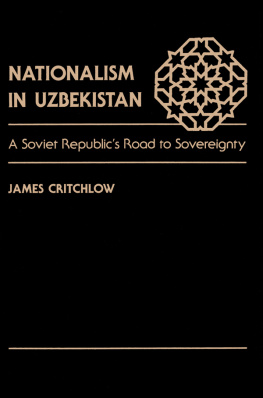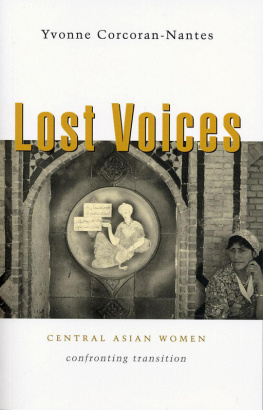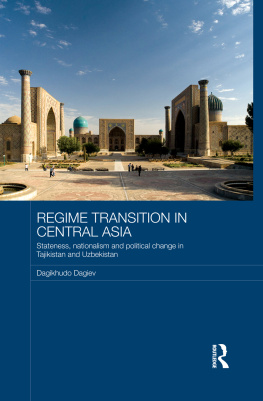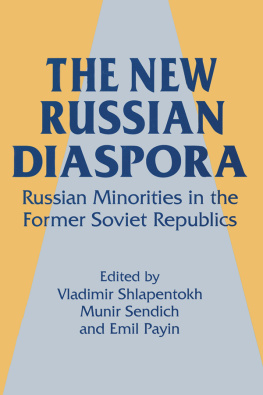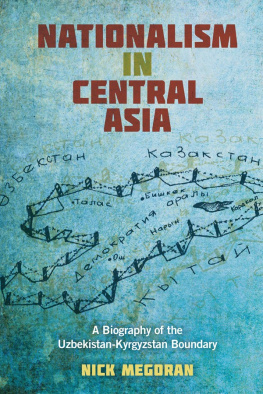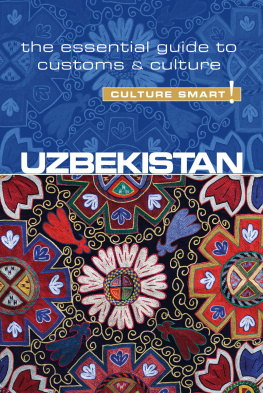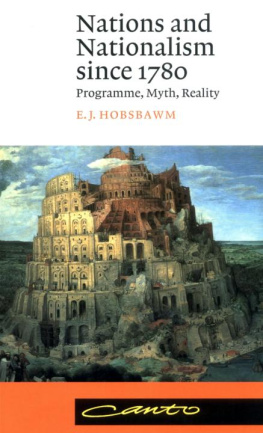This Westview softcover edition is printed on acid-free paper and bound in library-quality, coated covers that carry the highest rating of the National Association of State Textbook Administrators, in consultation with the Association of American Publishers and the Book Manufacturers Institute.
First published 1991 by Westview Press
Published 2018 by Routledge
711 Third Avenue, New York, NY 10017, USA
2 Park Square, Milton Park, Abingdon, Oxon OX14 4RN
Routledge is an imprint of the Taylor & Francis Group, an informa business
Copyright 1991 Taylor & Francis
All rights reserved. No part of this book may be reprinted or reproduced or utilised in any form or by any electronic, mechanical, or other means, now known or hereafter invented, including photocopying and recording, or in any information storage or retrieval system, without permission in writing from the publishers.
Notice:
Product or corporate names may be trademarks or registered trademarks, and are used only for identification and explanation without intent to infringe.
Library of Congress Cataloging-in-Publication Data
Critchlow, James.
Nationalism in Uzbekistan : a Soviet republics road to
sovereignty / by James Critchlow.
p. cm.
Includes bibliographical references and index.
ISBN 0-8133-8403-6
1. Uzbek S.S.R.HistoryAutonomy and independence movements
2. NationalismUzbek S.S.R. 3. Soviet UnionEthnic relations.
I. Title.
DK948.86.C751991
958/.7dc20
91-27668
CIP
ISBN 13: 978-0-8133-8403-0 (pbk)
In June 1990, the government of the republic of Uzbekistan declared its political independence. It followed this action in early 1991 by refusing, at least for a time, to sign a union treaty with Moscow because it held that the wording of the draft originally proposed by Mikhail Gorbachev was inconsistent with its newly sovereign status. As described in greater detail later in this book, Islam Abdughanievich Karimov, the President of Uzbekistan (and still First Secretary of its Communist Party), declared his republics willingness to continue an association with a Soviet Union, but only on a basis of equality in which Uzbek sovereignty would be fully recognized, and the prerogatives of the central government, such as responsibility for defense, would be delegated by voluntary consent of the constituent republics.
Only a few years earlier, Uzbekistan had been regarded as a classic example of a non-Russian Soviet republic subservient to Moscow in all things. What happened to bring it so rapidly to its new status of independence? Clearly, the new climate created by perestroika and glasnost is part of the explanation. Another part is the Kremlins preoccupation with more militant forms of separatism in the Baltic and Caucasian republics. But the internal forces in Uzbekistan which spearheaded its relatively quiet drive for independence did not emerge overnight: they have been at work beneath the surface for decades, beginning even in Stalins day. A reversion in Moscow to hard-line politics, as manifested by the anti-Gorbachev coup of August, 1991, can slow political evolution, but it cannot reverse it.
This book traces the growth of nationalism in Uzbekistan since its creation as a new political entity in 1925, with special emphasis on events of recent years. My aim is to provide background for assessing the rapid political change which has prevailed in Uzbekistan during the late 1980s and early 1990s, as Central Asia has followed other non-Russian areas of the Soviet Union in dissolving or altering its old ties with the center in Moscow. Obviously, the present pace of events is so breathtaking that no book-length work can be up-to-date these days in reflecting details of last-minute change. This volume is offered as the best possible alternative, a benchmark for measuring the nature and extent of Uzbekistans transformation at various steps of the way.
This is not an attempt to write a comprehensive history of modern Uzbekistan, nor a treatise on its economy, nor a Kremlinological analysis of its politics, tasks which the author cheerfully leaves to others. Rather, the more modest purpose is to touch on all of those things, and others, as they affect Uzbek ethnic awareness, to distill something of the soul of present-day Uzbek nationalism by examining the attitude of Uzbeks, especially the elites, toward some of the issues which inform the collective consciousness. I hope that this will contribute to the understanding of a new political entity which shows promise of becoming an independent actor on the international stage.
Part of the books claim to originality stems from the fact that it is based on Uzbek vernacular sources which have not been systematically developed by other researchers. These offer a unique insight into the mentality of Uzbek writers. Even in the pre-perestroika period, Uzbek-language media were less inhibited in expressing nationalist views than were parallel sources in the Russian language. This is doubtless explained by the relative inaccessibility of materials in Uzbek to Russians and other non-natives. Although even the vernacular media were not entirely free from censorship, they were the expression of Uzbeks dealing with other Uzbeks, with greater opportunities for candor and esoteric communication.
Two broad classes of issues have given stimulus to Uzbek nationalism: economic and cultural. The central economic issue has been imposition by Moscow of a cotton monoculture under which the Soviet planning organs in Moscow forced Uzbekistan to become the countrys primary cotton base. Under this system, the Uzbeks saw themselves as little better than cotton slaves to Moscow. Reckless expansion of cotton acreage, particularly in the 1960s and 1970s, stunted growth of other sectors of the economy and did enormous harm to the environment, leading to popular grievances in such emotional areas as living standards and health. The central cultural issue has been russification, the practical consequence of decades of Soviet policy which held that the Russian elder brother, his language and his culture, were superior to that of the Uzbeks and other non-Russian peoples; the Uzbeks saw this as a threat to the survival of their own identity and centuries-old Islamic culture. These two issues, and the conflicts which they engendered, are the leitmotiv of this book.
, The Rise of Uzbek Nationalism, describes, in historical perspective, the development of Uzbek nationalism from the early days of Soviet rule through approximately 1988. Its first chapter, Who Are the Uzbeks? focuses on the early days of Soviet rule when Uzbek first came to be regarded as the designation of a nation in the European sense of the word. Previously, Uzbek had been merely a conglomerate name for various Turkic tribes of nomadic origin. The chapter discusses the impact of Soviet policy and institutions in creating, for the first time ever, a sense of Uzbek national identity that came to be internalized by members of the Uzbek nationality. The second chapter, which is based mainly on a survey of the Uzbek-language press in the later 1960s and early 1970s, is entitled Prelude to Perestroika: Signs of Emerging Nationalism. It describes early efforts by Uzbek intellectuals to take advantage of the relatively lax policies of the Brezhnev period by making their republic into an emotional national symbol, while at the same time attempting to undo russifying trends of the Stalin era. The third chapter examines the post-Brezhnev reaction to Uzbek nationalism, particularly under Andropov and in Gorbachevs early years, which took the form of action against the Uzbek elites through a campaign aimed ostensibly at stamping out corruption that actually masked a much broader political objective.

